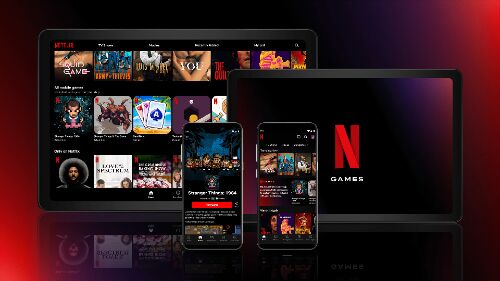A cautious venture?

Living up to its promise made in summer this year, Netflix has given a straight and simple offer to its consumers. It is now allowing its subscribers to play a selected list of games within their existing subscription plan. The games that are on offer over the android platform include Stranger Things: 1984 (BonusXP), Stranger Things 3: The Game (BonusXP), Shooting Hoops (Frosty Pop), Card Blast (Amuzo and Rogue Games) and Teeter Up (Frosty Pop). Starting with a small set of games as an extension of its existing services indicate that the platform is playing safely with its gaming aspirations. This slow and slightly ambiguous start has its own set of pros and cons. It is important to understand that gaming, even though being intended to be provided on a common platform with screening of movies and series, is a different ball game altogether. Venturing into a unique industry is not the same as extending a particular industry. The 'Harvard Business Review' laid out the distinction between Netflix's traditional services and gaming. The review differentiated online gaming as a 'lean-forward' activity against the 'lean-back' activities of binge-watching. It effectively means that users are more actively engaged while playing video games than while watching movies and series. This distinction reflects upon the whole character of the platform. Netflix had an opportunity to present its new service to the users as a unique initiative. Although Netflix already has some of the benchmark technologies to launch gaming services, it will still be required to incur incremental costs to operate its gaming function. Now, this incremental cost will have to be charged at some point in time from the users. Netflix's strategy appears to bring in the charging factor after it takes users in confidence. This strategy of increasing subscriptions or additional charges at a later stage could potentially backfire against the company in the long run. For sure, it may drive its subscription figures presently. But whether the subscribers will remain hooked depends upon how better Netflix can evolve over time. If the aim of Netflix is just to incentivize the popularity of its traditional services, then it is fine. But if it truly wishes to make someplace in an entirely new gaming domain, then its entry appears to be a timid venture as of now. Netflix could in fact have come out bolder by presenting its new service as a unique venture. It could have planned a strategy with greater clarity and assertiveness. Gaming is an emerging industry and there is enough trend in its favour. For now, what matters the most to gamers is the uniqueness of experience rather than pocket-friendliness. It should come as no surprise if other competing players also enter the gaming domain in near future with greater innovation. Much will depend on who picks the momentum first and how fast they are able to develop upon that. No ambitious player can afford to lag behind in this respect. To be sure, the prospect of Netflix in the gaming industry doesn't appear to be very clear. Still, there are a lot of positive features with which Netflix has come forward. In the Indian context, the company appears to aim for a broader market in the very first go by offering a free of cost gaming service initially, and then maintaining and evolving it over time. The second attractive feature is that some of the initial games on offer can be played offline. But is data usage even an issue with the users of a live-streaming platform of Netflix's stature? It is not yet clear upon what kind of market research the decisions are made. Furthermore, the platform also looks forward to rolling out games in vernacular languages. Another striking feature announced by Netflix is around the safety of children. Netflix has assured that the games are not available on kids' profiles and if anyone has set up a PIN to prevent kids from accessing adult profiles, the same would apply to the games as well. Some of these features of Netflix games present one more interesting question: Is Netflix looking forward to localizing its operations? The realisation on the part of the company that it needs to match its subscriber base with other competing platforms like Disney plus and Amazon Prime cannot be ruled out. There certainly is a limit up to which Netflix can grow by merely banking on value factors. To sum up, Netflix has made an innovative, but cautionary, venture into the gaming domain. The idea appears to be gaining the consumers' trust first and then building upon it. It remains to be seen how much value the platform could add to the initiative in coming years, and how will its plan for garnering revenue play out in the future.



